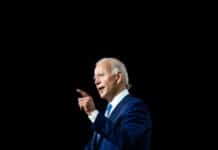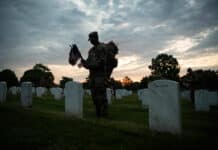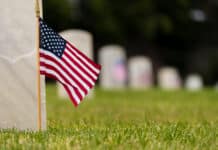
Our country pauses Monday to remember men and women who gave the ultimate sacrifice to this nation.
The day remains more significant than a day off work, or a chance to barbecue at the lake — though thanks to our veterans, feel free to enjoy those too.
Memorial Day, however, began 154 years ago when Civil War general and future president James Garfield addressed more than 5,000 families of the fallen at an Arlington National Cemetery ceremony.
Known as “Decoration Day” to honor the 650,000 men who lost their lives in America’s bloodiest war, the holiday was observed on May 30 for over a century. It received its original moniker when citizens honored soldiers by decorating their graves with flowers. As years went on, we included all veterans who perished defending the United States.
When established in 1868, it’s likely that most Americans memorialized someone they knew killed at war. Now there are tens of millions who haven’t sent anyone to fight in our current conflicts or mourned with a gold star parent.
A poll from two years ago noted that barely one-third of Americans understood the actual purpose behind Memorial Day. If they don’t, they also cannot understand the issues of today’s soldiers and veterans.
The disconnect should not occur. We have many books and films about today’s warriors.
There are also easy ways to honor fallen heroes, whether by visiting a memorial, attending a local parade, or supporting organizations that aid soldiers. I personally can’t wait for the Monday parade in my small town.
As George W. Bush said in his final Memorial Day speech as president, “The world has been transformed in unimaginable ways because of the noble service and devotion to duty of these brave individuals.”
During his call to make Decoration Day a national holiday, Gen. John Logan, who served in the Union Army, advised:
“Let us, then, at the time appointed, gather around their sacred remains and garland the passionless mounds above them with choicest flowers of springtime; let us raise above them the dear old flag they saved from dishonor; let us in this solemn presence renew our pledges to aid and assist those whom they have left among us as sacred charges upon the Nation’s gratitude — the soldier’s and sailor’s widow and orphan.”
Two of Abraham Lincoln’s most-noteworthy speeches mention soldiers’ graves. His first inaugural concluded by invoking “mystic chords of memory, stretching from every battlefield, and patriot grave, to every living heart and hearthstone.”
The Gettysburg Address, of course, was delivered at the dedication of the revered military cemetery in Pennsylvania.
When you’re an exceptional global superpower, freedom often comes at great cost. We need to learn and always remember that, especially Monday.
A.J. Kaufman
A.J. Kaufman is an Alpha News columnist. His work has appeared in the Baltimore Sun, Florida Sun-Sentinel, Indianapolis Star, Israel National News, Orange County Register, St. Cloud Times, Star-Tribune, and across AIM Media Midwest and the Internet. Kaufman previously worked as a school teacher and military historian.

















